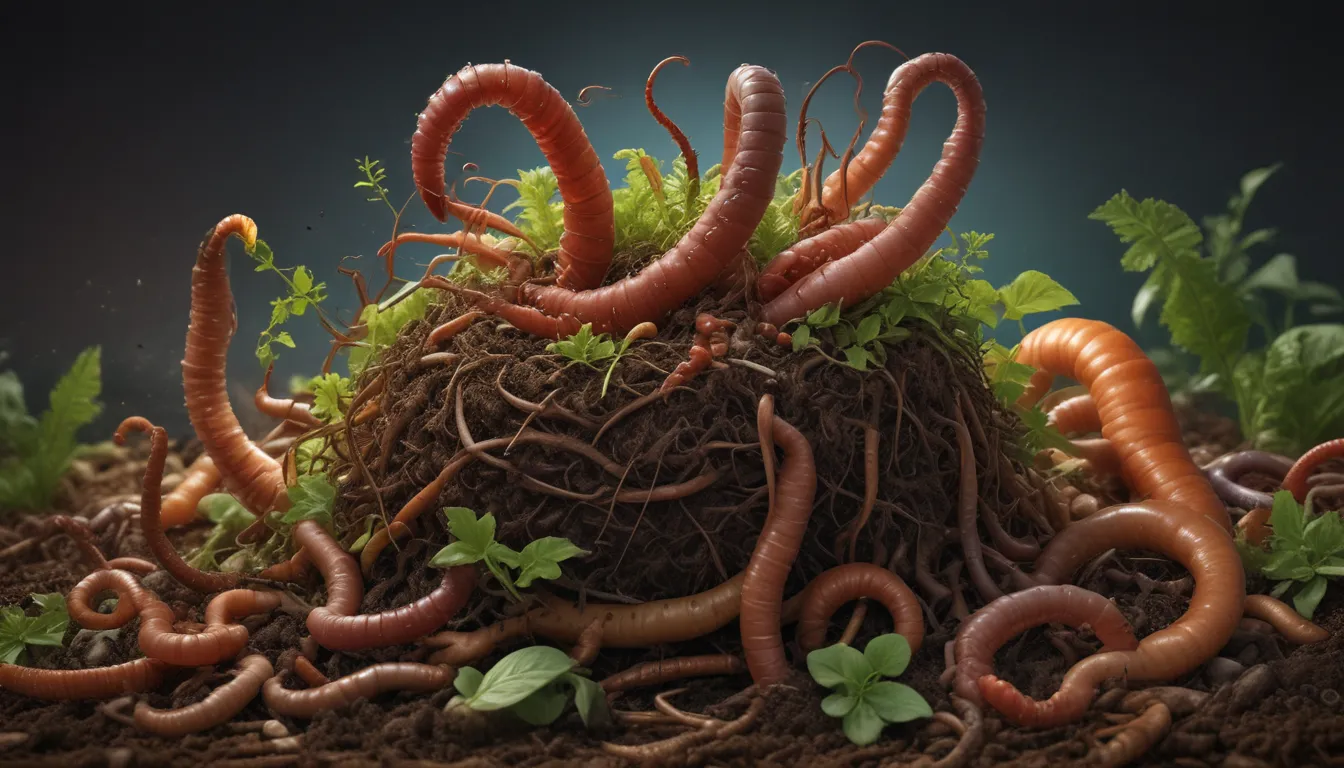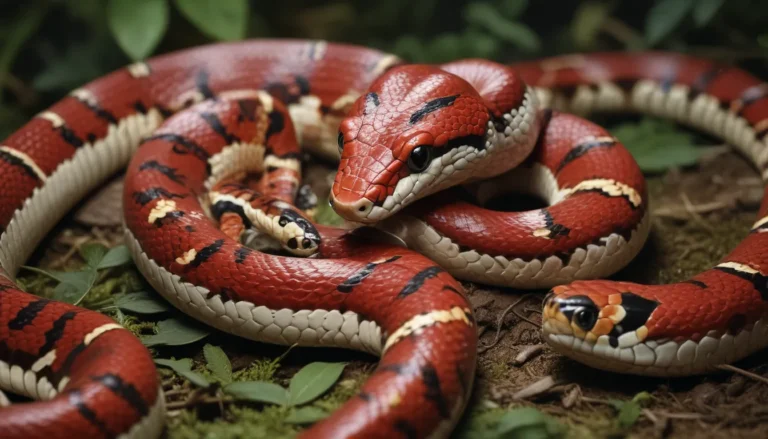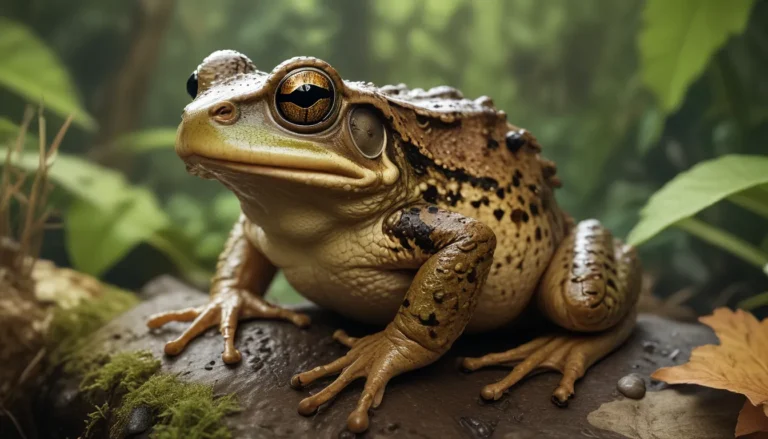The pictures we use in our articles might not show exactly what the words say. We choose these pictures to make you interested in reading more. The pictures work together with the words but don’t take their place. The words still tell you the important facts.
Are you ready to dive into the captivating world of compost worms, those tiny, wriggly creatures that work wonders in turning organic waste into nutrient-rich compost? Whether you're a seasoned gardener looking to enhance your soil or simply curious about these eco-friendly allies, you're in for an enlightening journey. In this comprehensive guide, we'll uncover 11 intriguing facts about compost worms that showcase their remarkable abilities and the positive impact they have on the environment. Let's embark on this exciting exploration together!
Delving into the World of Compost Worms: Key Takeaways
- Compost worms, also known as red wigglers, are instrumental in converting organic waste into valuable compost, benefiting both the environment and gardeners.
- These voracious eaters can consume their weight in organic waste daily, making them ideal for small-scale composting setups like worm bins.
Unveiling the Fascinating Facts about Compost Worms
The Colorful World of Compost Worms
Compost worms, scientifically referred to as Eisenia fetida, are commonly known as red worms or red wigglers due to their distinct reddish hue and characteristic wiggling movement. Their vibrant appearance adds a pop of color to the composting process!
The Recycling Experts in Nature
Compost worms serve as nature's little recyclers, diligently breaking down organic matter into nutrient-rich compost through their feeding and digestion activities. By consuming organic waste, they leave behind valuable castings that play a crucial role in enriching soil fertility.
The Insatiable Appetite of Compost Worms
Despite their diminutive size, compost worms possess an impressive appetite, devouring their own body weight in organic waste each day. This remarkable feeding rate allows them to efficiently decompose waste materials and contribute to effective waste management practices.
Thriving in Moist Environments
Compost worms thrive in moist conditions, as it enables them to breathe through their skin. They prefer bedding materials that retain moisture, such as shredded newspaper or coconut coir, creating a comfortable environment for their growth and activity.
The Circle of Life for Compost Worms
With an average lifespan of 1 to 2 years, compost worms have a relatively short but impactful existence. Under optimal conditions with proper care and nutrition, some worms can even live up to 5 years, showcasing their resilience and adaptability.
Hermaphrodites in Action
Each compost worm is a unique combination of male and female reproductive organs, allowing them to reproduce independently. Through a fascinating process of "mating," two worms exchange sperm before laying their own cocoons, perpetuating their population with ease.
Sensitivity to Temperature Extremes
Compost worms are sensitive creatures that thrive in temperatures ranging from 55°F to 77°F (13°C to 25°C). Extreme heat or cold can stress or harm them, underscoring the importance of maintaining suitable environmental conditions for their well-being.
Nutrient-Rich Treasures: Compost Worm Castings
Worm castings, also known as vermicast, produced by compost worms are hailed as "black gold" for gardeners. These nutrient-rich byproducts enhance soil structure, improve nutrient availability, and foster robust plant growth, making them invaluable for garden enrichment.
Small-Scale Composting Champions
Due to their adaptability to confined spaces, compost worms are perfect for small-scale composting systems like worm bins or vermicomposting setups. They excel at breaking down kitchen scraps, coffee grounds, and other organic waste, making them ideal allies in sustainable waste management.
Eco-Friendly Pioneers
By diverting organic waste from landfills and transforming it into nutrient-rich compost, compost worms contribute to reducing greenhouse gas emissions and promoting sustainable waste management practices. Their eco-friendly initiatives make them true champions in environmental conservation.
A Treat for Anglers: Compost Worms as Fishing Bait
Anglers delight in using compost worms as bait for fishing, thanks to their enticing wriggling motion that attracts fish. With their high protein content and natural appeal, compost worms are a favored choice among fishing enthusiasts seeking a successful catch.
Embracing the Potential of Compost Worms: A Conclusion
In conclusion, compost worms are truly remarkable creatures that play an essential role in the composting process. Their ability to efficiently break down organic matter and produce nutrient-rich compost offers gardeners and farmers a sustainable and natural method to nourish their plants. By understanding the various facets of compost worms, including their preferences, behavior, and benefits, we can harness their full potential in our composting endeavors. Whether you're a seasoned gardener or a novice enthusiast, consider integrating compost worms into your composting system to reap the multitude of benefits they bring to the table.
FAQs: Unveiling the Insights
- What are compost worms, and what makes them special?
- How do compost worms contribute to the composting process?
- What constitutes the diet of compost worms?
- How can one create an ideal environment for compost worms to thrive?
- What is the reproductive rate of compost worms?
- Are compost worms suitable for outdoor composting?
- What environmental benefits do compost worms offer?
- How can one utilize compost worms' castings for plant growth?
- What are the key factors in maintaining a healthy compost worm population?
- Is it advisable to combine compost worms with other worm species in vermicomposting?
- Where can individuals acquire compost worms for their composting initiatives?
Final Thoughts
As you embark on your journey into the realm of compost worms, remember that their role as composting champions extends far beyond the surface. Their unwavering dedication to converting organic waste into valuable resources underscores the importance of embracing sustainable practices and nurturing the environment. By welcoming compost worms into your composting endeavors, you not only enrich your soil but also contribute to a greener and healthier planet. Let the vibrant world of compost worms inspire you to cultivate a more sustainable future, one wriggle at a time!






